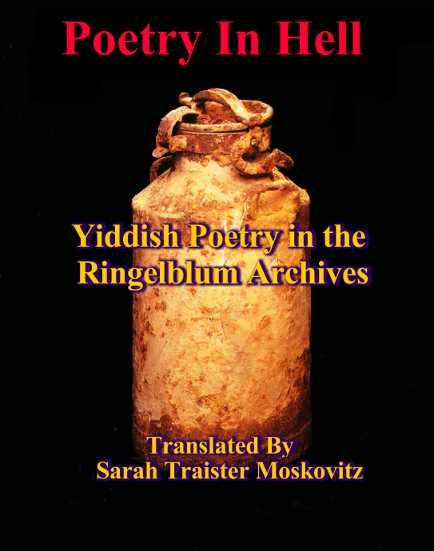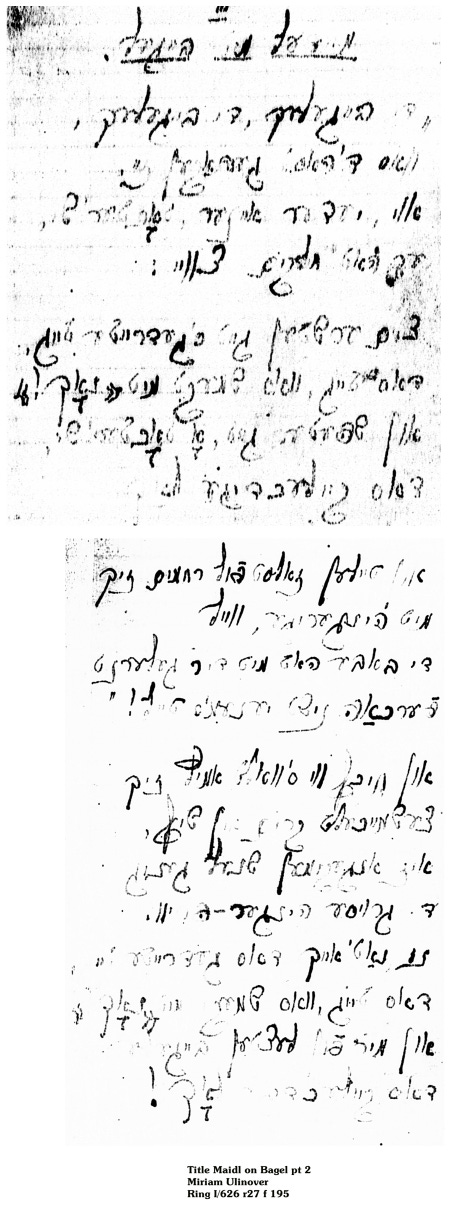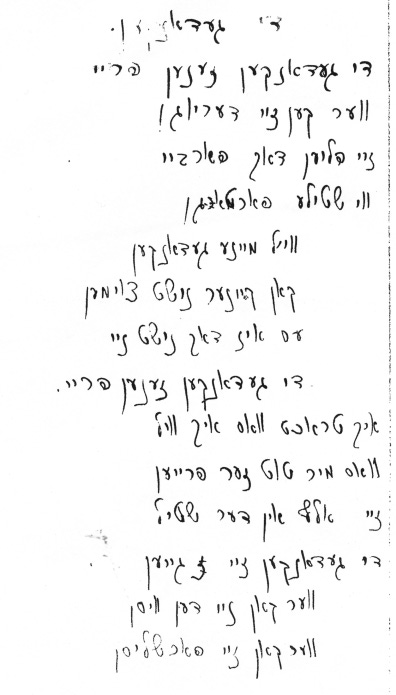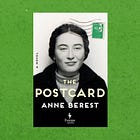"My Thoughts Are Free"
Poetry written by Jews in the Warsaw Ghetto in honor of Yom HaShoah.
Hi there! I hope you had a wonderful Passover and you didn’t miss chametz too much.
My Passover was spent with the happiest baby on earth, my niece. I’m guessing she was so giggly and full of smiles because she knew it was her first Passover (she’s really smart). To celebrate, I read her the Rugrats Passover story, Let My Babies Go!, which was the Passover story from my own childhood. Talk about passing our history down to the next generation!
Around the table, the adults talked abundant acts of love (thanks Kabbalist Omer app, MyOmer!), Israel, and Passover traditions. Also, shoutout to this Brooklyn-based kosher caterer for being insanely delicious (still dreaming about those honey chipotle wings - he ships nationwide).
Speaking of the Omer, The Shabbat Drop Omer Circle begins this Sunday morning. For those interested in Jewish spirituality, deep discussions, and 2020 Zoom nostalgia, you won’t want to miss it! Register here.
As we count the Omer and reflect on our collective liberation, this week also held the weight of Yom HaShoah, Holocaust Remembrance Day. It's a different kind of sacred time in the Jewish calendar that asks us to pause, remember, and honor six million lives lost.
And because April is National Poetry Month, I went digging around for Holocaust-themed poetry. However, everything I found was unsurprisingly grim. Poems about gas chambers and the feeling of a knife to the heart of the Jewish people didn’t quite speak to me, which makes me sound so privileged! Or choosy! But I wanted something that had more… life in it?
I was about to give up the search when I came across Poetry in Hell, a collection of poems written by Polish Jews during the Holocaust.
Bravely collected by members of the Oneg Shabbat Society, a secret group of Jews in the Warsaw Ghetto, they were hidden in buried milk cans as part of a larger mission to document ghetto life for the future. And life is exactly what they contain: the poets wrote about everything from bagels to heartbreak, from anger to faith.
After the war, the poems were recovered, preserved, and translated into English thanks to the Jewish Historical Institute of Poland and the United States Holocaust Memorial Museum.
I wanted to include poetry that wasn’t solely focused on pain and suffering, but that still gives voice and life to those who endured it. And the fact that they had enough hope to intentionally bury their words for someone in the future to find feels like its own quiet act of resistance.
The poems are grouped into five deeply human themes:
Nature
Home, Love, Life
Ghetto, Hunger, Struggle
Death, Anger, Mourning
Tradition, Faith, Protest
You can explore the collection yourself - it’s massive! But here’s a couple of poems that stuck out to me:
Girl With Bagel
by Miriam Ulinover (1890-1944)
The bagels the bagels
that we baked together
each one darling daughter
is made of two parts.
First we roll the tempting dough
to make a twisted pole
then put the ends together dear
to make a rounded hole.
And with a warm and generous heart
give to the hungry poor
remember what your Bobe taught
Don’t take another’s share
And soon enough there came a test
of hunger for the girl
Could she resist the tempting scent
of warm and twisted dough?
“So Here” she called, “come and get it!”
the dough that smells so fine
And from the bagel that is last
give me the hole-that’s mine!
Thoughts Are Free
Found in “Notebook for Grade 3,” which was buried in a milk can under the Ber Borokhov School, a Labor Zionist school in Warsaw
These are lyrics to a song of resistance against Nazism which was sung world wide in many languages during WWII.
My thoughts are free
they cannot be captured!
They just flutter by
like quiet new dawns
for no one can deface them
deny or erase them
You know it’s not new
You know this is true.
I think what I like
What makes me feel pleasure
My thoughts come and go
They’re my quiet treasure.
And no one can know them
Imprison or own them
No one can deny
Di gedanken zint fray.
Shabbat Shalom,







hice Drop as usual. Here are some 8 poems by Holocaust poets: https://poemanalysis.com/best-poems/holocaust/
a favorite: Paul Clelan, who ended up taking his own life
Thank you for sharing your knowledge with other generations, including MINE!!!! 😘